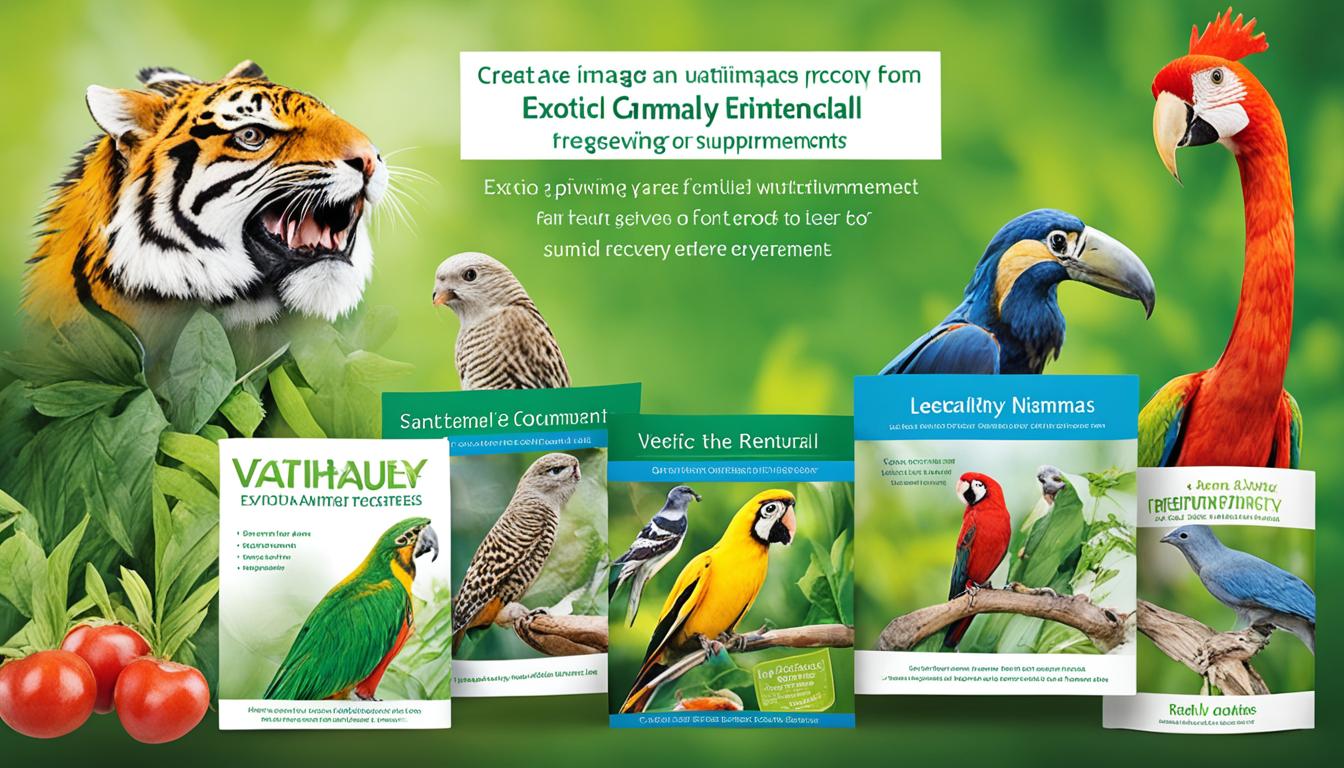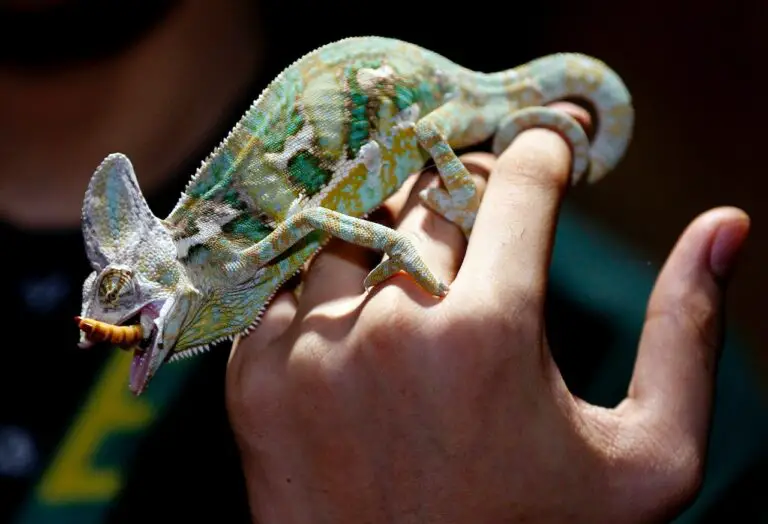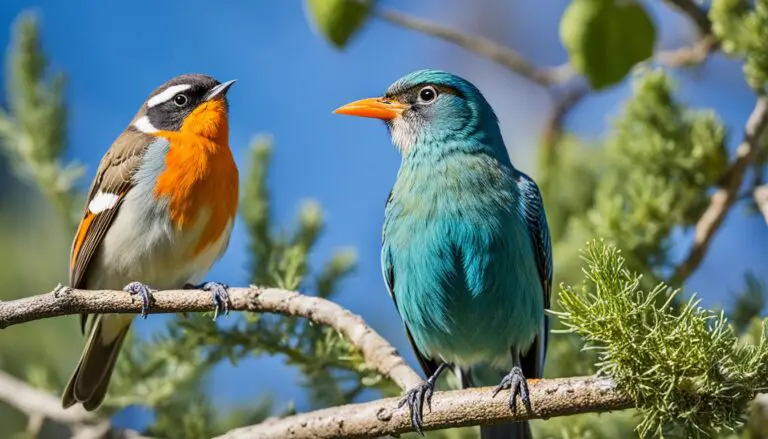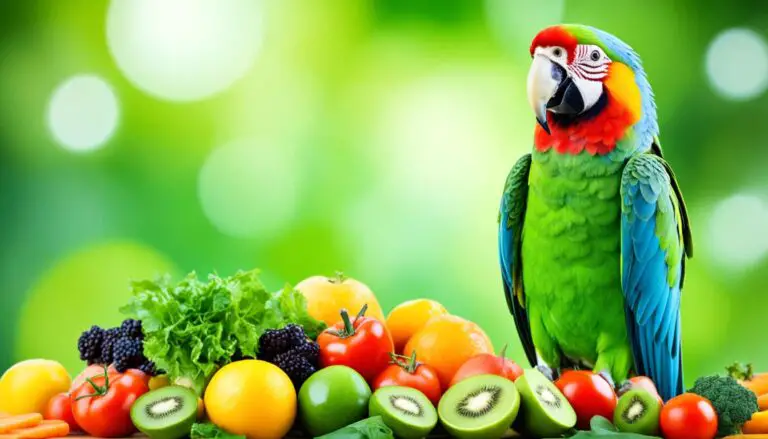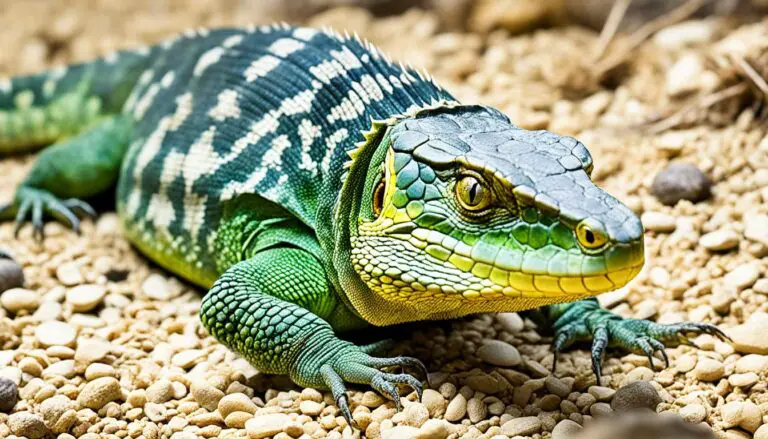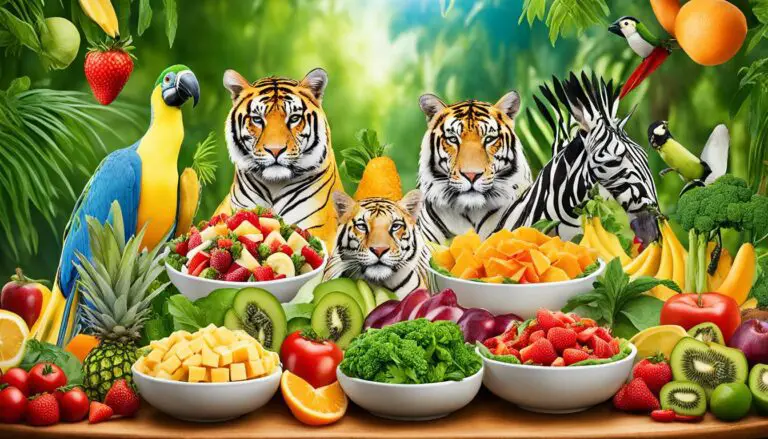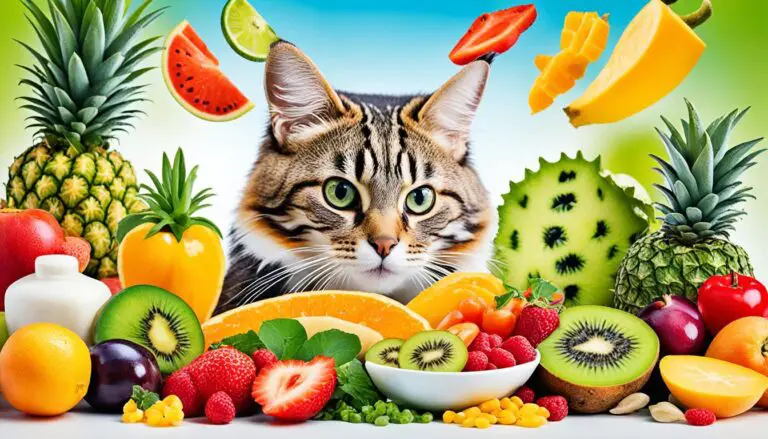Exotic Animal Recovery: Nutritional Support Tips
Providing proper nutritional support is key in helping sick or recovering exotic animals get better. These creatures are unique and need special attention. They require a diet that matches their needs to heal properly and stay healthy. You should carefully choose the right food, pay attention to key nutrients, and think about how to feed them early on.
Key Takeaways:
- Nutritional support is vital for the recovery of sick or recovering exotic animals.
- Early enteral nutrition can decrease mortality rates and shorten hospital stays.
- Enteral nutrition supports gut barrier function and reduces the risk of complications.
- Omega-3 fatty acids, arginine, glutamine, prebiotics, and probiotics are key nutrients for exotic animal recovery.
- Choosing the right diet, such as gastrointestinal or convalescence diets, is essential for optimal healing.
Benefits of Early Nutritional Support for Exotic Animals
Early nutritional support is crucial for exotic animals’ recovery. Just like with humans, studies show it lowers the risk of death and shortens time in the hospital.
In particular, starting a proper calorie intake within a day of surgery is key. This quick action has been proven to cut down recovery time by a lot. It helps the animals heal faster and dodge future health problems.
Feeding nutrients through the gut, known as enteral nutrition, beats giving them through a vein for exotic animals. It leads to briefer hospital stays, less infection, and better gut movement.
This way of feeding supports the animal’s digestion and use of nutrients. That’s good news when they’re trying to get better. It ensures they get the food they need for recovery.

“Early nutritional support plays a crucial role in the recovery of exotic animals. It can help decrease mortality rates and shorten hospitalization, ultimately leading to a faster and more successful healing process.” – Dr. Sarah Johnson, Exotic Animal Nutrition Specialist
The Benefits Summarized:
- Decreased mortality rates
- Shorter hospital stays
- Improved gastrointestinal motility
Taking care of an exotic animal’s food needs from the start is very important. It has a big impact on their healing and health. Next, we’ll look closer at how feeding through the gut helps them get better faster.
Comparing Nutritional Support Methods
| Nutritional Support Method | Benefits |
|---|---|
| Enteral Nutrition |
|
| Parenteral Nutrition |
|
Importance of Enteral Nutrition for Exotic Animal Recovery
Feeding nutrients through the gut is key for exotic animals to recover. It kick-starts their gut, helps their gut fence, and lowers risks like GI villous atrophy. Getting the right diet helps them heal and feel better.
Exotic animals need a dense, high-energy diet to get the calories they need. This helps them heal and boosts their immune system. Diets should be full of top-quality proteins to mend wounds and help the body fight off sickness.
Eating food that’s easy to digest is important for these animals. This way, they can soak up nutrients well, even if their stomachs are sensitive.
Enteral nutrition is vital for exotic animals to get better. A diet rich in energy and protein is great for healing and the immune system. Make sure these diets are easy to digest to absorb all the good stuff.

Enhancing Gut Barrier Function
Enteral nutrition is key for keeping the gut strong in exotic animals. A strong gut keeps bad stuff out of the body, which fights off sickness and swelling.
Good nutrition helps keep the gut wall strong, stopping sickness from getting in. This is extra important when animals are still weak and need to heal.
Nutrition that helps the gut keeps exotic animals from certain sicknesses. It makes their stomachs stronger and healthier.
Optimizing Recovery with Proper Nutrition
Exotic animals must eat right to get better. Enteral nutrition gives them the energy and nutrients they need to heal muscles, fight sickness, and be well.
Each animal’s diet should meet their unique needs, based on what their species naturally eats. This helps them recover best.
Custom diets help exotic animals get strong and healthy again more quickly.
Summary
Enteral nutrition is key for exotic animals to recover well. It boosts their gut health, immune system, and overall health. By choosing diets carefully, we can help them heal effectively and avoid problems. Good food is essential for their recovery and should be a top priority.
Key Nutrients for Exotic Animal Recovery
Certain nutrients are very important during recovery. They help exotic animals heal. Caregivers use these nutrients to speed up the recovery and make sure their pets health returns.
Omega-3 Fatty Acids
EPA and DHA are types of omega-3s. They help reduce inflammation in exotic animals, aiding their recovery.
Omega-3 fatty acids are key for good health. They’re found in fish like salmon, as well as flaxseeds and chia seeds. These fats help fight inflammation, which is good for healing.
Arginine
Arginine is important for healing wounds in exotic animals.
This amino acid is in meats, poultry, and dairy. It boosts collagen production and helps the immune system. Arginine is vital for recovery.
Glutamine
Glutamine is important for the immune system and gut health.
Glutamine supports the immune system. It’s in proteins like poultry and dairy. It also helps keep the gut healthy.
Beneficial Bacteria and Prebiotics
Prebiotics like inulin and fructo-oligosaccharides help good bacteria grow in the gut.
Good gut bacteria are crucial for health. Prebiotics help these good bacteria. Foods like bananas, onions, and garlic have prebiotics.
Probiotics
Probiotics are live bacteria that support the gut in exotic animals.
Probiotics are found in capsules, powders, and foods like yogurt. They restore gut balance. This is key for an animal’s well-being.
Using these nutrients can greatly help exotic animals recover. But, always talk to the vet first. They can advise on proper dosages and forms your pets need.

Choosing the Right Diet for Exotic Animal Recovery
Choosing the right diet is key when exotic animals need help to get well. After surgery, it’s smart to pick a diet that’s easy to digest and has lots of energy. This kind of food helps the animals’ stomachs absorb what they need for healing.
Some animals might need even more help, like those getting food through a tube. For them, diets packed with more energy and protein are best. These special diets help the animals recover their strength and reduce how much food they need.
Benefits of Gastrointestinal Diets
Gastrointestinal diets have many pluses for sick exotic animals:
- They are easy to digest. The body can soak up the nutrients quickly, which is great for healing.
- Less fiber means the digestive system has less work. This lets the animal use its energy to get better.
- These diets have extra calories. More calories mean more energy to support healing and overall recovery.
Convalescence Diets for Special Nutritional Needs
When special care is needed, convalescence diets are a good choice:
- They have more energy than regular gastrointestinal diets. This helps animals that are very weak get stronger.
- Convalescence diets are also rich in protein. Protein is key for fixing tissues, healing wounds, and getting better.
Giving exotic animals the right, easy-to-eat food full of energy and protein is vital for their recovery. Always talk to a vet or an animal nutrition expert to find the best diet for each animal’s needs.
Comparison of Gastrointestinal and Convalescence Diets
| Gastrointestinal Diets | Convalescence Diets |
|---|---|
| Highly digestible | High energy density |
| Low residue | Higher energy density |
| Targeted for routine recovery | Targeted for animals with significant malnutrition or increased nutritional needs |
| Contain essential nutrients for healing and overall recovery | |
Maximizing Voluntary Intake in Exotic Animal Recovery
After surgery, exotic animals often lose their appetite. Getting them to eat well is key to their recovery. Caregivers must watch what they eat and see to it they get the calories they need. They start by figuring out how many calories the animal requires at rest.
Varying the food’s texture, and feeding by hand when needed, can boost how much they eat. Watching how much food they take in is crucial. This lets caregivers make sure they’re eating enough and change the way they feed them if they’re not.
Understanding Inappetence in Exotic Animals
Exotic animals might not feel like eating after surgery or when they’re sick. The stress, changes in surroundings, or medicine can make them lose interest in food. It’s very important for caregivers to understand this and try to get the animals interested in food again.
Monitoring Calorie Requirements
Knowing how many calories exotic animals need is crucial for their recovery. Caregivers use the resting energy requirements (RER) to find out. This method looks at the animal’s size, weight, age, and how active they are. By knowing this, caregivers can provide the right amount of food to meet their needs.
Meeting Calorie Needs
Getting exotic animals to eat enough food might be hard, especially if they don’t want to. In these cases, caregivers might need to try different feeding methods. This could mean feeding by hand or using a tube under a vet’s advice. Working with a vet or nutritionist is a good idea to make a feeding plan that’s just right for the animal.
It’s good to offer different food textures to help them eat more. Some animals like soft food, while others like it crunchy. Finding out what they like can make them more eager to eat.
Caregivers must regularly check how much the animals are eating. They should also watch if their eating habits change. This helps them tweak feeding plans to make sure the animals are getting better.

Expert Tips for Maximizing Voluntary Intake
“A peaceful mealtime environment can help exotic animals eat more. Less noise and touchy-feely stuff can make feeding time a chill experience. This helps the animals to eat on their own.”
“The right taste and smell can get animals to start eating. Adding a bit of low-sodium broth, herbs, or spices can make food more appealing. This can arouse the animals’ senses and get them interested in their food.”
“Hand-feeding can sometimes encourage shy animals to eat. It takes patience to feed them this way, letting them set their own eating speed. This can make feeding time a more enjoyable experience for everyone.”
“Talking to a vet or nutrition expert who knows exotic animals is a smart move. They can give advice on how to get animals eating better. This can really help the animals in their recovery.”
Nutritional Support in Exotic Pets: Responsibilities of Pet Stores and Breeders
Pet stores and breeders are key in the exotic pet trade. They have to look after these unique animals well. This means providing the right food and teaching about what each pet needs to eat.
Pet Store Responsibilities
Pet stores must take care of the exotic animals they sell. They need to know what each one should eat. Then, they should share this info with people looking to buy.
It’s also up to pet stores to make sure buyers know how to keep their new pets healthy and happy. This includes teaching about nutrition and care.
“We believe that responsible pet stores prioritize the health and well-being of the animals they sell. This includes providing accurate information about their nutritional needs and offering appropriate diets.”
Breeder Responsibilities
Breeders ensure their animals are well-fed and healthy. They need to focus on the right food for their animals. This is vital for their well-being before they are sold.
Breeders also play a big role in education. They should teach buyers how to best look after their new pets. This is key for the pets’ long-term health.
“As responsible breeders, we take pride in providing animals that are not only healthy but also well-fed. We aim to educate buyers about their specific nutritional needs, helping them create a healthy and balanced diet for their exotic pets.”
The Importance of Responsible Selling and Purchasing
It’s a team effort between pet stores and breeders to sell exotic pets right. This helps the pets live good lives. It’s about more than selling – it’s ensuring the pets are cared for well.
When this is done well, pets get the right food and care. It cuts down on health problems because of poor nutrition or care.
| Pet Store Responsibilities | Breeder Responsibilities |
|---|---|
| Ensure proper care, husbandry information, and nutritional support for exotic animals. | Provide well-nourished and healthy animals to potential buyers. |
| Offer accurate information about the specific dietary needs of each exotic species. | Educate buyers about proper care and nutrition for the animals they sell. |
| Prioritize the health and well-being of the animals they sell. | Ensure the animals are in optimal health and nutritional status. |
Legal Restrictions on Exotic Animal Ownership
Owning exotic animals is not always allowed. There are laws to protect both animals and the people. States like New York and Hawaii limit or ban owning certain exotics, like iguanas. They do this for reasons like stopping harmful species from spreading or avoiding health threats from these pets.
By having these laws, we aim to keep animals and the environment safe. Exotic pets might harm local animals if they get loose. They could also spread illnesses to people.
Some places need special permits for exotic animal ownership. These permits make sure owners know how to take care of their unique pets. They also check if people have everything necessary to keep their pets safe and healthy.
Before getting an exotic pet, know the rules in your area. If you break these rules, you might face fines or lose the animal.
Obtaining Special Permits
The way to get a permit changes by location. You might need to fill out a form that talks about the animal and how you plan to look after it. You’ll also have to show you know what the animal needs and that you can keep it safe.
They might ask you to prove you can take care of the pet during an emergency. It’s key to know what’s required before getting an exotic friend. Greasing the wheels with seasoned breeders or local animal groups can help you comply with the rules.
Examples of Legal Restrictions on Exotic Animal Ownership
| State | Restricted Exotic Animals | Special Permit Requirements |
|---|---|---|
| New York | Iguanas, venomous snakes, primates | Permit required for ownership of certain exotic animals |
| Hawaii | Mongoose, non-domestic canines, certain reptiles | Strict permit requirements for ownership of exotic animals |
| California | Large cats, certain primate species | Permit required for ownership of restricted exotic animals |
Enthusiasts must know the rules where they live. Following these laws and getting the right permits help protect exotic pets. It also aids in safeguarding the natural environments where these animals come from.
Conclusion
It’s important to feed sick or recovering exotic animals the right food. This helps them get better faster. Pet shops, breeders, and owners must know how to feed these animals correctly.
Experts say you should give exotic pets food that’s rich in energy. It should have high-quality proteins and important nutrients like omega-3s. Picking the best food, ensuring pets eat enough, and keeping track of calories are key in their recovery.
Pet stores should tell the truth about what exotic animals eat. Breeders must care for the health and dietary needs of the animals they sell. They should teach new owners how to properly care for these animals. It’s also important to know the laws about keeping exotic pets to protect their well-being.
Helping exotic animals eat well is crucial for their recovery. By learning from experts and providing proper nutrition, caregivers make a big difference. This leads to the animals being healthy and happy again.
FAQ
Why is nutritional support important for sick or recovering exotic animals?
What are the benefits of early nutritional support for exotic animals?
Why is enteral nutrition important for exotic animal recovery?
What are the key nutrients for exotic animal recovery?
How do you choose the right diet for exotic animal recovery?
How can you maximize voluntary intake in exotic animal recovery?
What are the responsibilities of pet stores and breeders regarding exotic animal nutrition?
Are there legal restrictions on the ownership of exotic animals?
Why is providing proper nutritional support important for the recovery of exotic animals?
Source Links
- https://emeraid.com/vet/critical-care-nutrition/
- https://www.veterinary-practice.com/article/post-operative-feeding-in-companion-animals
- https://static.nsta.org/case_study_docs/case_studies/exotic_pet.pdf
Peter Stones is the founder of Exotic Pets Place, the leading online resource for exotic pet care information.
With over 10 years of hands-on exotic pet ownership experience, he is deeply passionate about sharing his expertise to help others properly care for their unusual pets.
When he's not writing extensively researched articles or connecting with fellow exotic pet enthusiasts worldwide, you can find Peter at home tending to his own beloved menagerie of exotic animals.

